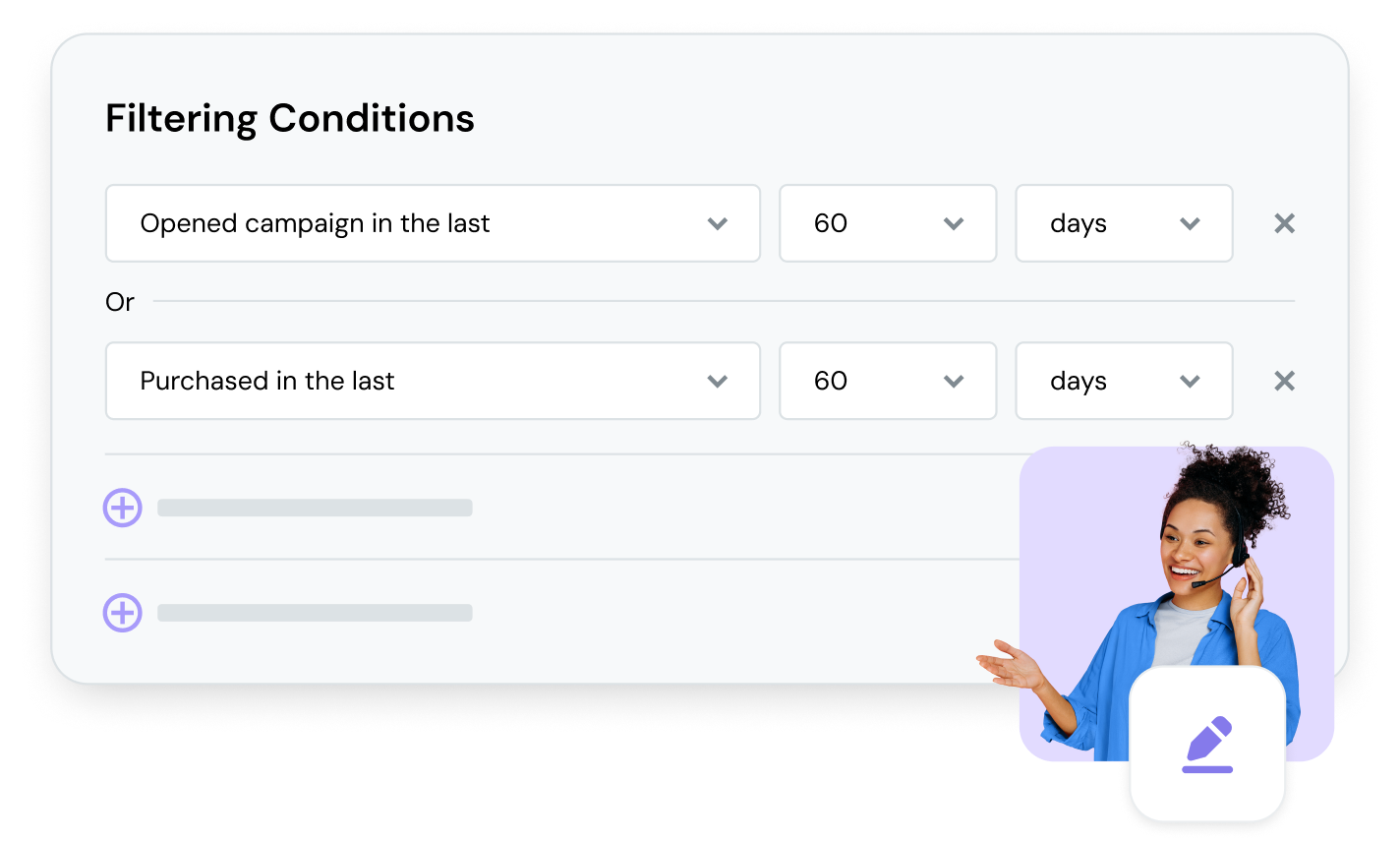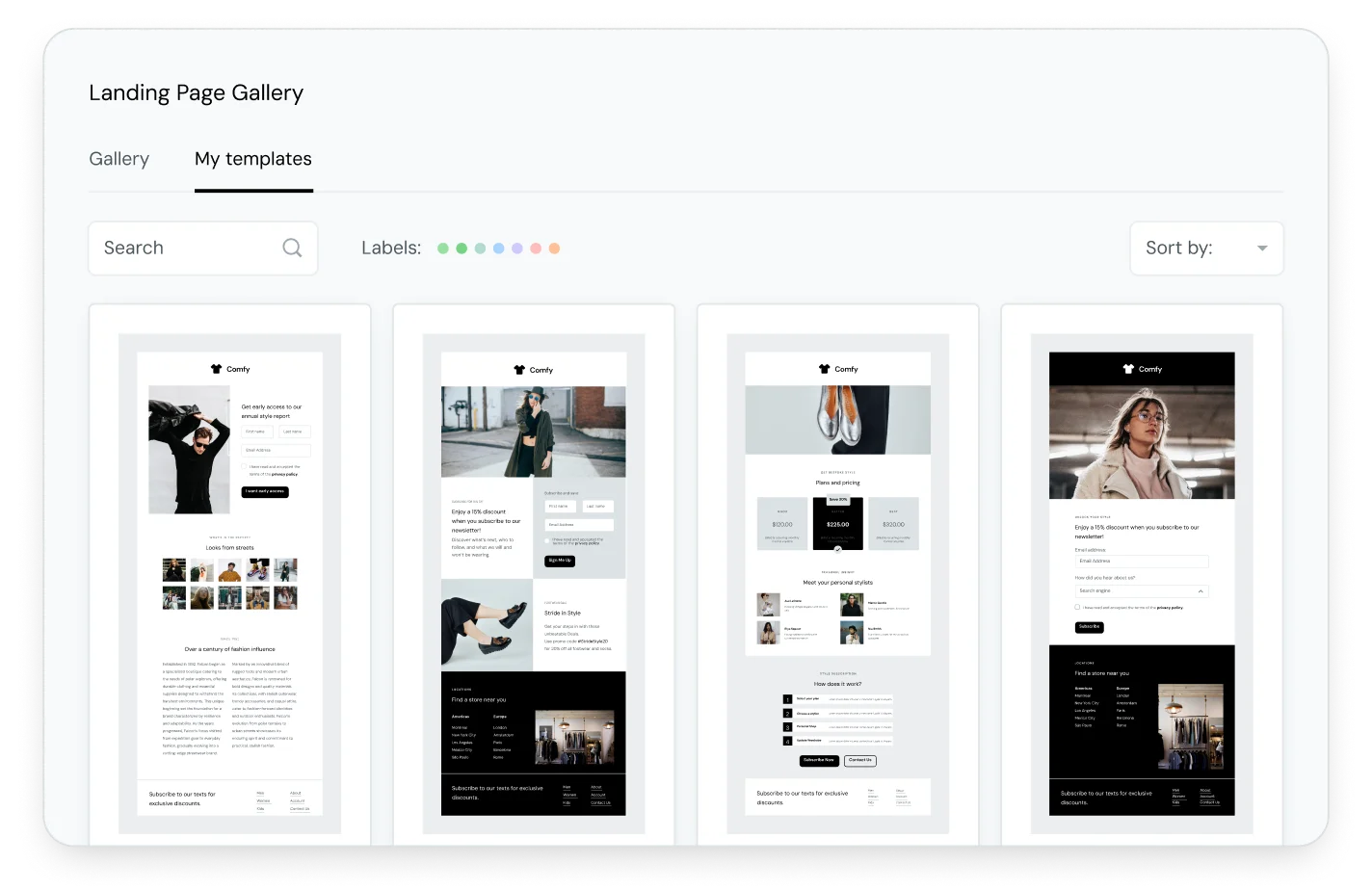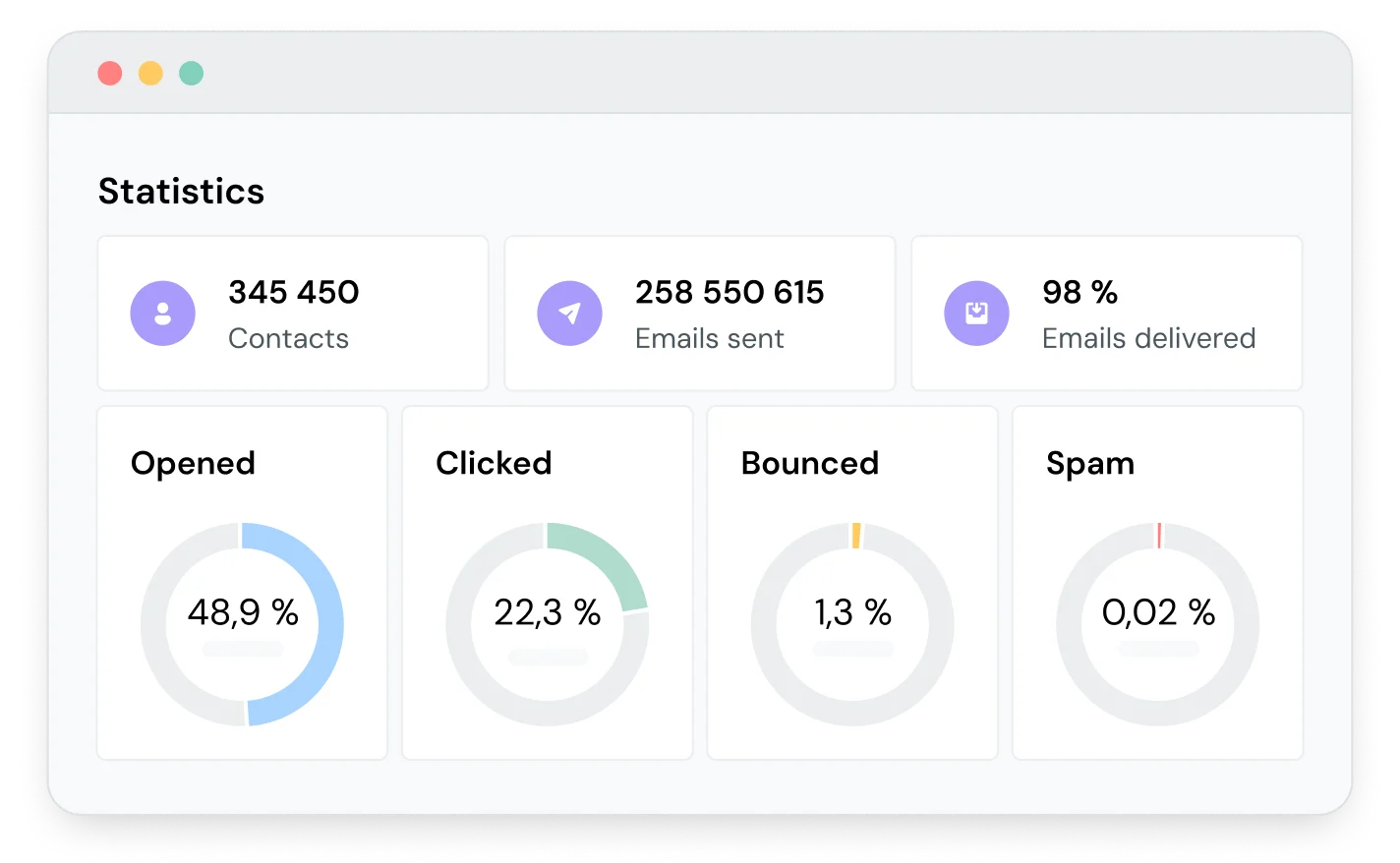Email best practices
What’s an email blast, and is it okay to send one?

Email best practices

Email blasts and mass texting are bad – at least that’s what we’ve been told for a long time. But hear us out! There’s still some merit to sending out bulk emails – if you do it right.
In this post, we’ll teach you how to do just that, running through some of the tips and best practices when it comes to sending out an email blast.
An email blast is one version of an email sent to a lot of people. They’re also called mass emails or e-blasts. They’re considered problematic by some because these one-to-many messages are often unsolicited and perceived as spam by users. Plus, these emails would not target anyone in particular, let alone a target audience of email subscribers.
That’s obviously an issue. Email marketing should never seem spammy but rather careful, resourceful, and intentional. Which is why most countries have made this type of unsolicited cold emailing illegal. In the European Union or the United States, businesses are required to get the recipients’ permission before adding them to an email list and sending them promotional messages.
Plus, if you try them, you may notice your sending reputation and deliverability rates drop faster than your eye can blink.
So, are email blasts a thing of the past? Not quite. Done right, they can still be a highly effective email marketing strategy.
When you stop and think about it, the sentiment behind sending an email blast makes sense. After all, it’s an effective way to get your marketing message out to many people at once. It’s just the execution that’s wrong.
As a business, you shouldn’t send the same messaging to your entire email list at once for the same reason you wouldn’t send a friend and your grandmother the same text message.
So, is there a way to communicate with your email list effectively, while still focusing on personalization? The answer lies in understanding how to send email as a catalyst for engagement and a high return on investment (ROI).
Here are some tips for setting up efficient email blasts without spamming users.
Segmentation divides your contact list into smaller groups based on certain traits. This can be an excellent personalization technique to deliver relevant emails targeting new subscribers based on their interests.
At Sinch Mailjet, we have advanced email list segmentation features for data tracking. These allow you to track the effects of segmenting your contact lists in real time. It’s no secret that segmenting your lists can increase email open rates. But segmentation needs to be correct to work well. Whether based on gender, age, location, industry, or email behavior, you need to be data-driven but person-led in your segmentation tactics.
It pays to know how to segment your lists, especially in tandem with sending the right emails, with the right content, at the right time(s) to be effective. Segmentation can increase not only open rates but actual revenue.

Segmenting your email lists is important for sending more relevant content.
Being able to segment your contacts is only the first step of a successful email blast. But you also need to have the right tools to personalize content, create a fitting design, perform A/B testing and use a responsive design – all while keeping the effort required for all of this at a minimum.
That’s where email marketing tools like Sinch Mailjet come in.
We’ve got the technology behind us that can take your email communication to the next level combined with your email service provider (ESP), like:

All of our templates are responsive by design, so you can just choose from our ready-made newsletter or transactional templates, or customize one of our marketing, ecommerce, travel, or sports designs.
Send me the Mailjet Newsletter.
The last thing you want to do with an email blast is spam people. That’s why it’s crucial to follow newsletter best practices, regardless of whether you’re sending one email or one thousand.
First off, you should always get users’ permission before sending them emails. There’s a reason permission-based marketing remains the gold standard for how brands communicate with customers. You can do so by adding a double opt-in confirmation to your email chain to ensure consent and that you keep your email lists clean. Also, while it might seem counterproductive to building an email list, you should make it easy for users to unsubscribe from your list.
Arguably the most important aspect to any email marketing campaign is that you deliver value to your subscribers. That you fulfill whatever promise it was that you made to them. Whether that’s a weekly or bi-weekly newsletter on industry updates, a monthly product review, or perhaps a notification every time a new blog post is published. If not, these email blasts will “blast” you straight to a spam folder.
On that note, you might want to avoid these spam words, too.
You’re reading this article because you want results. From an email marketing perspective, this could mean anything from:
Having a firm understanding of your goals will help inform the look and feel of your messaging and make your email blasts truly relevant. When you know what you’re trying to accomplish, you’ll better understand what to write in everything from the email subject line to your call-to-action (CTA).
Once you’ve set your goals, it’s important you identify specific metrics to track their progress. These metrics will indicate how successful your email blast was, and where you can still improve.
But don’t get too bogged down by the details. You know how the saying goes: “Perfection is the enemy of progress-” You wouldn’t want to spend too much time crafting the perfect emails, which could hold you back from actually sending them. Most email marketing software platforms should give you access to some form of dashboard that gives you a general overview of campaign performance.

Sinch Mailjet’s analytics dashboard tracks KPIs like open rate, CTR, bounce rate, marked as spam, and more. You can also complement our software with urchin tracking modules (UTMs) such as Google Analytics to further track the effectiveness of your email marketing campaigns.
An email blast focuses on sending one email to as many people as possible. While this is very efficient for large promotions like sending out information about a new product or an event, it might not always be the right approach.
In that case, you can consider some alternatives.
Segmented email campaigns are different from email blasts for a couple of reasons. While email blasts are sent out to your entire (or a very large part of your) email list, segmented campaigns are sent to smaller segments of your audience based on targeted personalization. These rely heavily on several techniques to help stir recipient curiosity, from intriguing subject lines to time, region, or other personalized, relevant email content.
For instance, if you produce athletic gear, you might run a campaign to showcase your products to two audience segments: one that lives in a warm climate and the other in a cold one. To personalize your content for both parties, the recipient who lives in the warm weather might see photos of athletes using your product in an environment similar to where they live. The same can be done for the recipient living in a cold climate, with products showcased in low-temperature environments.
These are great when you want to send consistent content to your audience at a certain cadence. By focusing on one or two topics each time you send an iteration of your newsletter, you’ll be able to engage your audience and further build a relationship with them.
Your newsletter can cover many subjects, from customer-generated content like reviews and support content to FAQs and answers to promotional events or business news.
Transactional emails are automated email messages sent after a customer has performed a desired action. Maybe someone has made a purchase or subscribed to your service or email newsletter. Their action triggers a transactional email in direct response, further building their relationship with your brand or business.
There are many ways to organically grow your email lists. You could use social media, include subscription widgets and pop-ups on your website, include a newsletter opt-in in your emails, or create multichannel campaigns that encourage subscription. If you just flex your creativity, the sky’s the limit.
Segmentation divides your contact list into smaller groups based on a set of traits. This can be a great personalization technique to deliver relevant emails that subscribers want to see based on their interests.
Sending out personalized email campaigns is the bread and butter of modern email marketing. Customized email campaigns perform better in open and click rates than their bland counterparts.
For example, at Sinch Mailjet, we have personalization features that allow you to fill in various types of property information. You can also use our Segmentation tool to segment your contact lists into relevant subgroups that get the right content at the right time.
At the end of the day, email marketing is essentially about boosting revenue (more subscribers should lead to more paying customers). But before you can get to that point, you need to ensure your campaigns are built around three essential pillars:
Without these characteristics, your newsletter won’t be able to draw a consistent and engaged readership.
Email blasts have a bad rap, but if you pay attention to the details like asking for permission, personalizing the messaging, and carefully segmenting your audience, they can still be an effective part of your marketing strategy. This should enable you to engage your audience, target new leads, and grow your business.
Now that you know the ins and outs of email blasts, you’ll need an email marketing platform from which to send them. Just so happens that we’ve got just the thing.
Send me the Mailjet Newsletter.
This is an updated version of the article “Email blast: 4 tips to send better email campaigns“, by Julian Canlas and published on Mailjet’s blog in 2018.